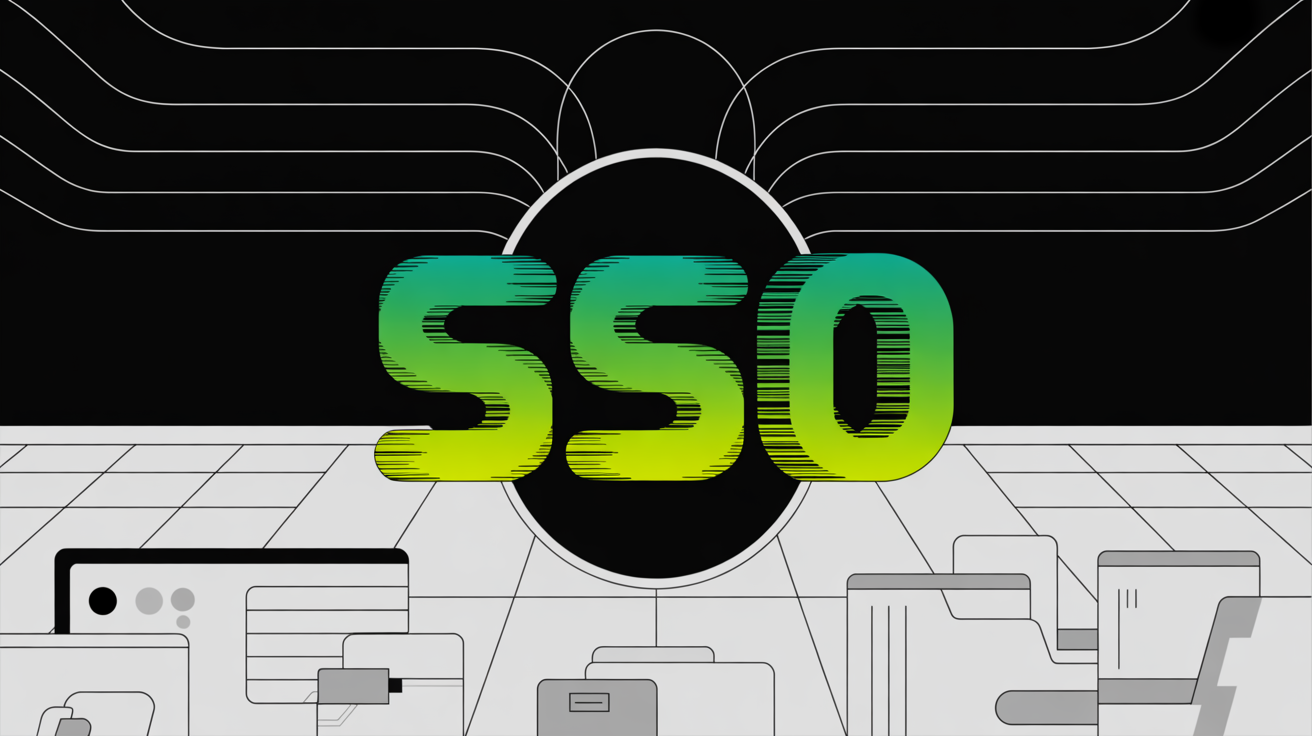Build your first embedded data product now. Talk to our product experts for a guided demo or get your hands dirty with a free 10-day trial.
Enterprise buyers are blunt. They don’t just want SSO. They expect it. If your product doesn’t offer it, you’re already out of the deal.
In 2025, single sign-on (SSO) has gone from a “nice-to-have feature” to a gatekeeper in enterprise sales. It’s not about making logins smoother or keeping support tickets down—that’s the user experience side. This is about something bigger: trust.
For CIOs and CISOs, SSO is a non-negotiable proof point that your SaaS takes security seriously. And without that trust, you won’t even make it past procurement.
Enterprise security is non-negotiable
Security isn’t just a compliance checkbox anymore. It’s a dealmaker—or a dealbreaker.

The numbers say it all:
Identity has become the front line of enterprise defense. If your SaaS doesn’t meet that bar, you’re not just “missing a feature”—you’re waving a red flag.
During our recent panel on SaaS security, it was put clearly: “Security has shifted from one IT owner to a company-wide practice.” That shift means the burden isn’t just on one person in IT to greenlight your tool. Security runs through procurement, legal, compliance, and leadership. Without enterprise-grade authentication, you’ll get blocked long before the business users get excited about your features.
Why SSO = enterprise trust
Single sign-on is more than a login shortcut. To enterprise buyers, it represents control, governance, and risk reduction.
Here’s why SSO signals trust:
Enterprise buyers don’t see SSO as an extra—they see it as table stakes for trust.
What happens when you don’t offer SSO
If you’re still treating SSO as a roadmap “maybe,” here’s what it costs you:
It’s not even a recommendation anymore—it’s actively discouraged to keep forcing password rotations. Enterprises notice when vendors cling to outdated approaches. If your authentication model feels behind, you risk being dismissed as a vendor who hasn’t caught up.
SaaS leadership perspective
If you’re leading a SaaS company, ask yourself these questions honestly:
These aren’t theoretical. Most SaaS companies with enterprise aspirations hit this wall at some point. For many, it’s a painful wake-up call: no matter how good your product is, it won’t matter if security leaders can’t trust it at the access level.

Catching issues later on is extremely expensive. Waiting until you’ve lost deals before prioritizing SSO is one of those expensive mistakes.
SSO as table stakes for enterprise SaaS
Think back to SSL certificates. Fifteen years ago, plenty of websites didn’t bother with HTTPS. It was optional. Some only added it for checkout pages. Fast-forward to today: a website without HTTPS is practically invisible in search rankings and screams “unsafe” to visitors.
SSO is following the same trajectory. What was once a premium feature is now a silent baseline. In two or three years, SaaS products without SSO will be effectively unsellable in the enterprise market.
Enterprise IT leaders aren’t waiting for vendors to catch up—they’re already demanding it. And buyers are learning to ask the question earlier in the sales cycle. Some even filter out vendors before demos if SSO isn’t confirmed.
The enterprise readiness playbook for SaaS vendors
If you want to stay competitive in enterprise sales, here’s how to position SSO:
Don’t wait for customers to demand it. Make it part of your “enterprise readiness” foundation, alongside SOC 2 audits and data encryption.
Don’t bury it in technical docs. Put it in your sales deck and on your website. Make it visible as a trust signal.
SSO alone isn’t enough. Enterprises look for a package:
Stop framing it as a cost. Security removes sales blockers, shortens deal cycles, and gets you through procurement faster. For enterprise buyers, SSO is proof you’re ready to handle their business.
Call to action for SaaS leaders
Enterprise clients already expect SSO. It’s no longer a differentiator. It’s a baseline. If you’re not building it in, you’re closing the door on future deals.
Think of SSO as more than a login solution. It’s a trust badge, a sales accelerator, and a statement of maturity. If you want to win enterprise buyers in 2025, don’t wait for IT to demand it. Make SSO a proactive part of your enterprise-readiness story.
Because the reality is simple: without it, you won’t even make it past the lobby.
All your questions answered.
Build your first embedded data product now. Talk to our product experts for a guided demo or get your hands dirty with a free 10-day trial.
